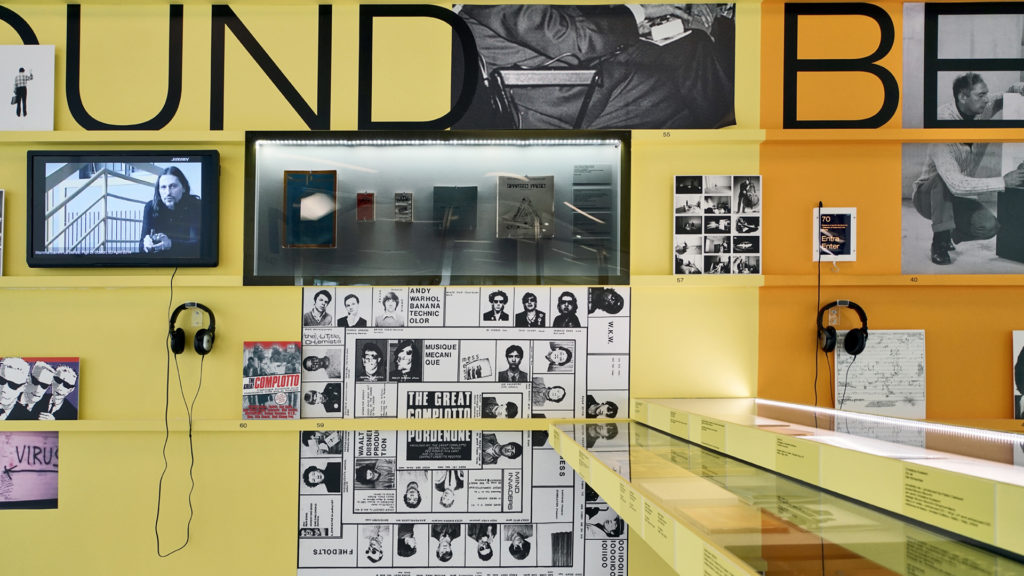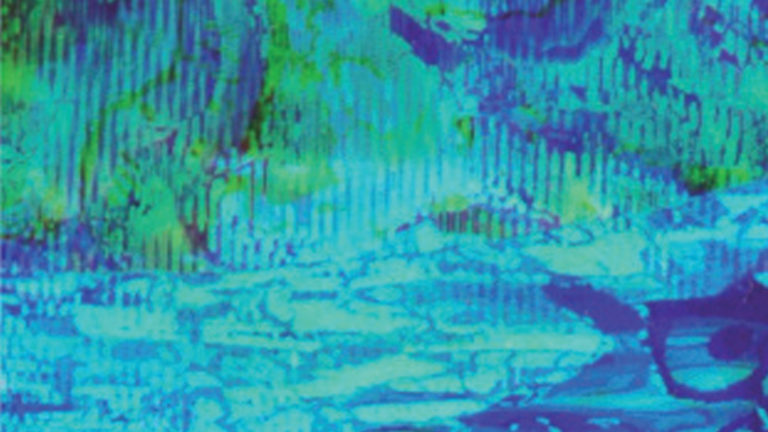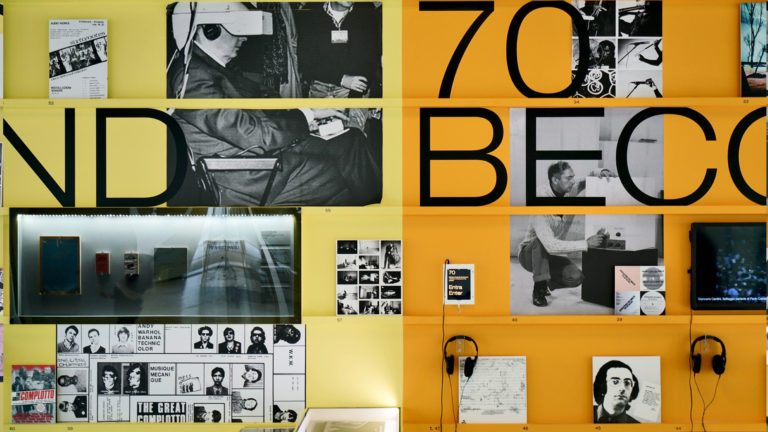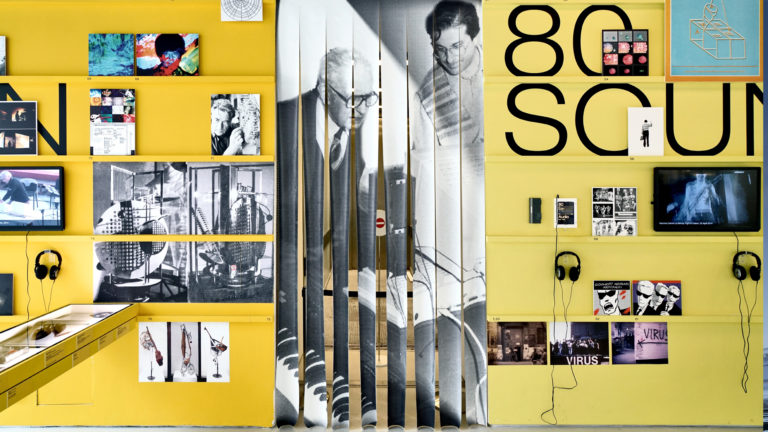Performing The Archives. Sound.New languages of experimentation
an event within
other events of the Performing The Archives. Sound. cycle

Monday closed
Tuesday to Sunday 11 am – 7 pm
Tuesday 24 December 11 am > 4 pm
Monday 25 December closed
Tuesday 31 December 11 am > 4 pm
Wednesday 1 January 11 am > 7 pm
Monday 6 January 11 am > 8 pm
for young people aged between 18 and 25 (not yet turned 25); for groups of 15 people or more; La Galleria Nazionale, Museo Ebraico di Roma ticket holders; upon presentation of ID card or badge: Accademia Costume & Moda, Accademia Fotografica, Biblioteche di Roma, Centro Sperimentale di Cinematografia, Enel (for badge holder and accompanying person), FAI – Fondo Ambiente Italiano, Feltrinelli, Gruppo FS, IN/ARCH – Istituto Nazionale di Architettura, Sapienza Università di Roma, LAZIOcrea, Palazzo delle Esposizioni, Amici di Palazzo Strozzi, Accademia Nazionale di Santa Cecilia, Scuola Internazionale di Comics, Teatro Olimpico, Teatro dell’Opera di Roma, Teatro di Roma, Università degli Studi di Roma Tor Vergata, Youthcard; upon presenting at the ticket office a Frecciarossa or a Frecciargento ticket to Rome purchased between 27 November 2024 and 20 April 2025
valid for one year from the date of purchase
minors under 18 years of age; disabled people requiring companion; EU Disability Card holders and accompanying person; MiC employees; myMAXXI cardholders; registered journalists with a valid ID card; European Union tour guides and tour guides, licensed (ref. Circular n.20/2016 DG-Museums); 1 teacher for every 10 students; AMACI members; CIMAM – International Committee for Museums and Collections of Modern Art members; ICOM members; journalists (who can prove their business activity); European Union students and university researchers in art history and architecture, public fine arts academies (AFAM registered) students and Temple University Rome Campus students from Tuesday to Friday (excluding holidays); IED – Istituto Europeo di Design professors, NABA – Nuova Accademia di Belle Arti professors, RUFA – Rome University of Fine Arts professors; upon presentation of ID card or badge: Collezione Peggy Guggenheim a Venezia, Castello di Rivoli Museo d’Arte Contemporanea, Sotheby’s Preferred, MEP – Maison Européenne de la Photographie; on your birthday presenting an identity document
MAXXI’s Collection of Art and Architecture represents the founding element of the museum and defines its identity. Since October 2015, it has been on display with different arrangements of works.


14 Jan 2025 06.00 pm
lectureMongolian Buddhist Art and Zanabazarby Geshe Lharampa Javzandorj Dulamragchaa
14 Jan 2025 06.30 pm
lectureIn movimento: danza, coreografia, architetturawith Susanne Franco
15 Jan 2025 06.00 pm
talkAnalisi, distruzione e rinnovamentowith Monia Ben Hamouda
23 Jan 2025 06.00 pm
talkZibaldoneCAMPO
30 Jan 2025 06.00 pm
talkMusei possibili. Storia, sfide, sperimentazionicurated by Fulvio Irace



Archive Wall – entrance fee 5 euros
ticket to 3 events 10 euros – free for myMAXXI cardholders
Three events to trace back the history of sound experimentation in Italy from 1950 to 2000
In conjunction with When Sound Becomes Form, we will retrace the fundamental stages of Italian sound experimentation over the course of three events.
This is a 50 years-long story, where sound comes off the stave and looks at new electronic technologies giving shape to innovative artistic languages and enabling a manipulation of sound and an amplification of space itself, with a cross-fertilisation of cinema, art, choreography, literature, publishing and mass media.
At our second event we start from the 70s, when Galleria Mara Coccia in Rome became a musical instrument in the Magic Carpet installation by Alvin Curran. In those same years, Luca Maria Patella with his Boschetto di Alberi Parlanti e profumati, creates an interactive sound installation with wind and birds chirping. Rome is taken over by sounds and improvisations.
Giancarlo Cardini works on avant-garde audiovisual works and eventually creates a sound micro-theatre. In the 80s the experimentation generated by technologies drives a new research that widens both conscience and vision (cyber, hacktivism) and that will be used by GMM (Giovanotti Mondani Meccanici) both in their sound installations and radio/tv programmes.
Introduced by
Carlo Fatigoni curator of the When Sound Becomes Form
Speakers
Alvin Curran e Giancarlo Cardini
Moderated by
Bartolomeo Pietromarchi Director of MAXXI Art